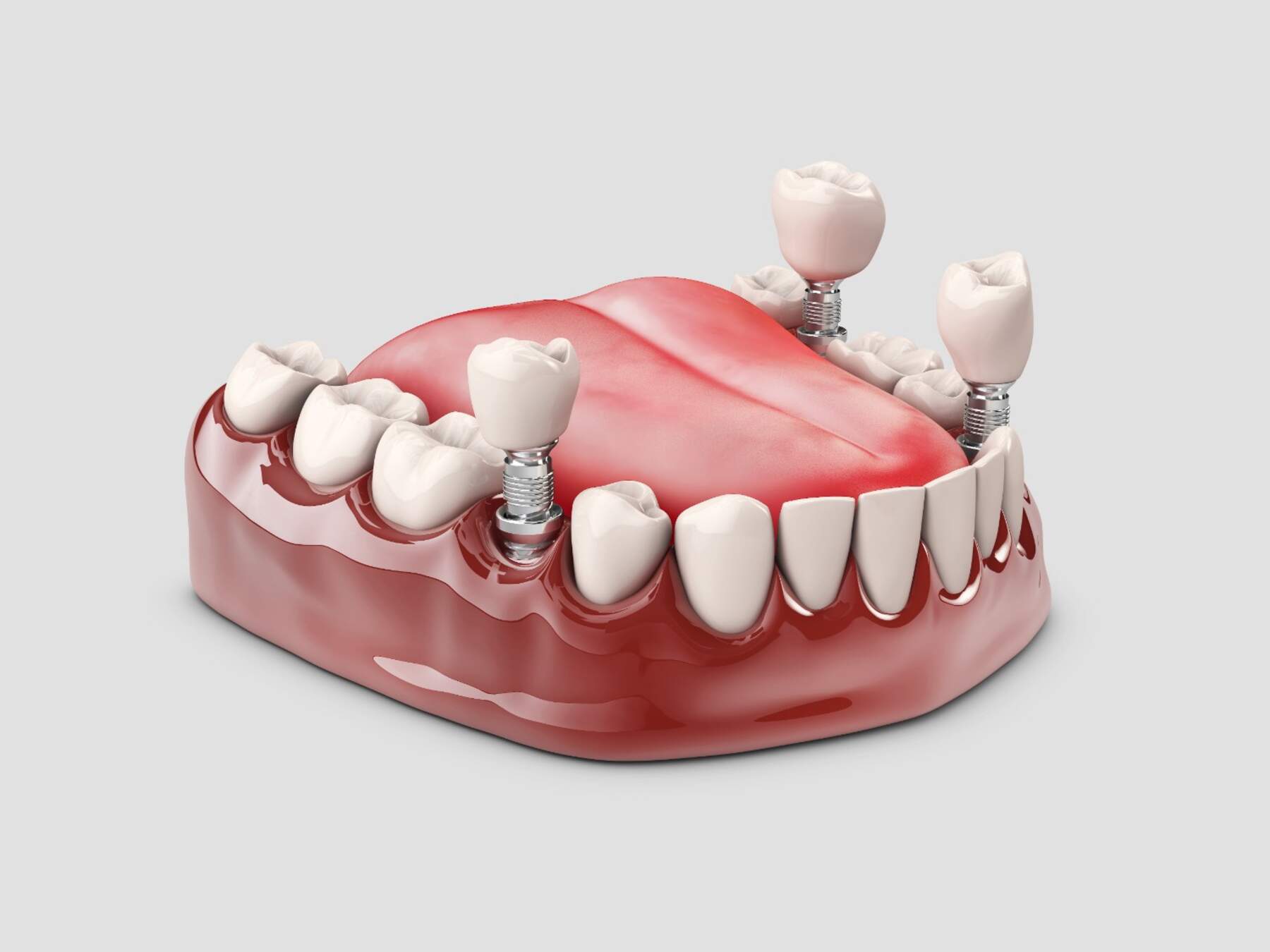Dealing with toothache is something everyone wants to avoid. There are several reasons why a tooth can start to ache, some of them can be; gum disease, cavities, or a root canal. However, you may consider that sinus infection can also be the root of this pain, as they feel similar to each other. We will talk about the difference between these two issues, what can be done to fix them and when you should consider calling a doctor for your problem.
Understanding Sinusitis
The sinuses are air-filled passageways positioned near the facial bones of our face. Their purpose is to moisten and filter the air in the nasal cavity. Sinuses can become infected or inflamed, producing discomfort and pressure in this area. The discomfort frequently spreads to the teeth region and is misdiagnosed as toothache. Multiple teeth might be impacted simultaneously. Because it is closest to the sinuses, the upper teeth are the most impacted. When sinus pressure is the cause of sore teeth, you may also experience other sinusitis symptoms that can be:
- Sore throat
- Facial tenderness or pressure on the infected area
- Foul breath
- Fever
- Fatigue
- Thick, discolored mucus in the mouth
- Ear pain

How long does a sinus toothache last?
A sinus infection normally lasts fewer than four weeks, depending on severity. Subacute sinusitis can persist between 4 and 12 weeks. If the sinus infection progresses to a chronic stage, your symptoms may persist longer than 12 weeks and it may be more difficult to be treated.
Ways to Get Relief
It is essential to seek medical attention for sinus pain as soon as you suspect you have it to reduce the discomfort and find a solution. Sinus pain may be painful. It is advised to take over-the-counter medications like Tylenol and Advil to ease sinus infection pain. Depending on the kind of sinus infection you have, your doctor may advise one of several different treatments. The discomfort can be managed with nasal sprays, which also clean the cavities. It should be used often throughout the day. The doctor may recommend allergy medication to treat your sinus infection if it is brought on by allergies. Nasal corticosteroids may occasionally be advised to reduce irritation and if a bacterial infection is the root of your sinus infection, you will be given an antibiotic prescription.
Before seeking medical treatment from their doctor, many individuals choose to try home remedies. The sinuses can be opened by practicing steam breathing, which involves sitting in a hot shower or inhaling steam from a bowl of water. The way that humidifiers help to expand the sinuses is quite similar to how steam inhalation works. To avoid bacteria accumulating, adhere to the cleaning and maintenance recommendations. Cover your face with a warm, damp cloth. Drink a lot of water to help the mucus drain and thin it down. These are some of the methods used to relieve the pain from the sinuses.

Understanding Tooth Pain
Toothache can be caused by several reasons. Decay, tooth grinding, root infection, past trauma, and gum disease can result in pain. It is usually reasonable to assume that a dental problem is the cause when the pain is severe, throbbing, or restricted to a single tooth or in this area. If you notice damage in your tooth or signs of decay start to show, the reasonable explanation is that the problem is coming from a dental issue.
How to Treat a Toothache
You can try to relieve the toothache by several natural remedies without the use of medication. A rinse with salt water can remove the bacteria and has anti-inflammatory properties that can be relieving for a short period depending on the level of the pain. A cold compress can be put on the area that is hurting you, but avoid hot drinks and beverages as they can inflame it more and cause more pain. Paper mint tea bags can help reduce the pain because they contain menthol, which is known for its numbing effects. The stubborn food that is stuck can sometimes cause pain and you can prevent it by flossing and brushing your teeth regularly. If the pain is persistent and doesn’t stop even after a lot of tries, you should contact your dentist to see what can be done.

How to Tell the Difference
This kind of discomfort can sometimes identify sinus pressure from toothache; for example, if the pain is continuous and involves several teeth, it’s usually sinus pressure. On the other hand, a toothache is most likely the cause of a strong or throbbing pain that seems to be isolated to one tooth. Some symptoms of sinusitis and toothaches are similar, such as headaches, fever, and poor breath, and that is why sometimes it could be challenging to determine if you have a toothache or a sinus infection.
Each illness does, however, have a few peculiar symptoms that differentiate them from one another. Symptoms of sinus infections that are different from a toothache can include; congestion or runny nose, the sense of smell is off you could suffer from sore throat and postnasal drip. When you suffer from a toothache, cold or hot food can cause teeth sensitivity, and you may feel discomfort when eating. Swollen gums and sharp throbbing pain in the teeth can also be some symptoms that can make toothache distinguishable.
Another connection exists between sinus pressure and toothaches because sinus infections can occasionally be brought on by dental infections. The maxillary sinus is extremely near to the upper back of your teeth area. A tooth infection may spread to the sinuses if it tears the membrane lining the nasal cavity. About 40% of persistent sinus infections are thought to be brought on by tooth infections. So, if you get a toothache, it’s crucial to receive dental care quickly to prevent infections from spreading to your bones or sinuses and making the problem worse.
Check Your History
Your medical history can help the doctor decide if what you’re going through is a sign of a sinus infection or a toothache. If you have previously suffered from these issues it is easier to decide on what route of treatment to follow.
If you have suffered previously from different dental issues, such as cavities or previous root canals, the dentist might examine your teeth more easily and find the issue quicker. On the other hand, if you have a history of sinus infections, the doctor might consider the possibility of your current discomfort being related to sinus pressure and not mistake it for other issues.
Your dentist will be able to make a more accurate diagnosis if you talk to them about your past medical conditions. This helps you avoid treatments that aren’t necessary and guarantees you get the best care possible for your particular disease. A precise diagnosis is essential to treating the discomfort as soon as possible and keeping you safe, whether it is sinus- or dental-related.

See Your Dentist
Whether it’s a sinus infection or a toothache, if the discomfort continues it means something is wrong. The dentist will examine your teeth and determine the problem, so schedule an appointment as soon as you can. Deciding this makes it simpler to decide how to stop the experiencing pain. When the doctor taps the upper back teeth, if any of them feel sensitive, sinusitis may be to blame for the pain. X-rays may also be taken by the doctor to help rule out oral disease as the cause of the issue that is occurring and decide if sinusitis is the cause of the discomfort. After this examination, the doctor may prescribe you the medicine that is needed.
Give it a Little Time
A thorough check-up gives the doctor the chance to make a diagnosis and quickly get you back to living pain-free. After a few days, sinusitis-related tooth discomfort frequently gets better or goes away completely. If a tooth is the root of the issue, there won’t be any progress over time. The existence of various conditions such as bruxism, tooth-grinding, periodontal disease, cavities, and dental abscesses may be indicated by persistent tooth discomfort.

The Importance of Having a Good Dentist
Since a person’s oral health may be an important indication of their general health, it’s crucial to find a qualified and reputed dentist for all your dental health requirements. This frequently provides the patient comfort regarding their dental treatment. Additionally, it’s important to pick a dentist who is reachable and has an after-hours emergency number for any case. This is especially important when a patient is experiencing severe mouth discomfort and is unsure of the possible causes. Dentists can tell if a patient has a toothache or if it’s more likely the discomfort of severe sinus pressure using a physical examination and an x-ray.
Instead of wasting time wondering whether a toothache or sinus pressure has occurred, schedule an appointment with a qualified dentist who has expertise and training. A patient who misdiagnoses a significant dental issue as sinus pressure might be setting themselves up for excruciating pain and a more difficult cure to the actual unresolved condition, so that’s why it is important to have a professional diagnosis of the case by a professional. A physical examination and an assessment of the patient’s symptoms should enable the dentist to either start treating a toothache or suggest the patient consult a doctor to inquire about sinus pressure relief. This simple action might help stop a toothache from getting worse and necessitating more extensive dental work down the road.
The bottom line
Toothaches are one of the many symptoms that sinus infections can produce, mainly in the upper back teeth. Although this may be uncomfortable, both problems are easily fixed. Your toothache should go away once you have your sinus infection treated. Typically, within a week or two, symptoms will get better or disappear completely. If infection or inflammation continues after the medication, or if any of the signs worsen, think about consulting a doctor and fixing this issue with their help




